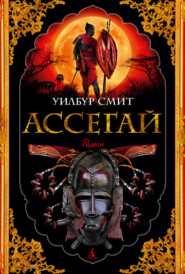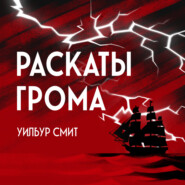По всем вопросам обращайтесь на: info@litportal.ru
(©) 2003-2024.
✖
Predator
Автор
Год написания книги
2019
Настройки чтения
Размер шрифта
Высота строк
Поля
‘So Angola’s relatively peaceful?’
‘These days, sure, and the other advantage you have operating there is that your installations are way out to sea. A lot of the Nigerian ones are in the waters of the Niger Delta, much closer to the mainland, so they’re a helluva lot easier for the bad guys to attack.’
Cross frowned. He’d been told to expect a warning, but all he was getting was good news. ‘So what’s the problem?’
‘I thought you’d never ask,’ said Franklin.
You’re a cool operator, aren’t you? thought Cross, feeling increasingly annoyed with himself for not getting on a flight to DC and conducting the meeting in person. But now she was talking again. ‘You see, there’s one last hangover from the civil war: the province of Cabinda. It’s separated from the rest of Angola by the narrow strip of territory that links the Democratic Republic of Congo to the Atlantic Ocean. Cabinda still has a rebel movement that calls itself – wait for it – “The Front for the Liberation of the Enclave of Cabinda – Forças Armadas de Cabinda”, or FLEC-FAC for short.’
‘I’m tempted to put another vowel between the “F” and the “C” there.’
Franklin laughed, a deliciously feminine giggle that delighted Cross. Gotcha! he thought triumphantly.
The State Department analyst swiftly recovered her professional poise. ‘The rebels have offices in Paris and in Pointe-Noire, which is in the Republic of Congo—’
‘Which is not the same as the Democratic Republic of Congo,’ Cross interrupted.
‘Exactly. The Republic is much smaller and used to be ruled by the French. The Democratic Republic is massive and used to be ruled by the Belgians. Cabinda’s squeezed in-between the two of them. But here’s the thing: almost half of all Angola’s oil is situated in what would be the territorial waters of Cabinda if it were ever an independent state. And the entire population of Cabinda is less than four hundred thousand people. So it could, potentially, be a very, very rich little territory.’
‘Sounds like a place worth fighting over,’ said Cross.
‘You got it. Now, how closely have you been involved in the Bannock Oil operations in Angola?’
‘Not at all closely. My wife, Hazel Bannock Cross, was murdered last year. She died giving birth to our daughter. As you can imagine, I’ve had other issues to deal with.’
‘I quite understand. I’m very sorry for your loss,’ Franklin said, sounding as though she meant it.
‘Thank you. So, you were going to talk about Bannock’s Angolan operations?’
‘Indeed. You see, the Magna Grande field where your colleagues have just struck oil is actually located in Cabindan waters, and it will add more than ten per cent to Cabinda’s daily production of oil. As it is, all that money goes to Angola. But if Cabinda were independent, fields like Magna Grande would be making this hypothetical small nation even richer. Our concern at the State Department is this: sooner or later someone is going to figure that backing the rebels in Cabinda in exchange for a share of future oil revenues could be a very smart investment. Cabinda is vulnerable because it’s really small. You could fit it into the state of Texas ninety times over. To put it in British terms, it’s about the size of your county of North Yorkshire.’
‘So unlike Iraq or Afghanistan, it’s not a large area for an army to seize or to hold.’
‘Exactly. And because it’s separated from the rest of Angola, the only way that the Angolans can get men and supplies into Cabinda is to fly them in, through Congolese airspace, or to ship them up the coast. Which would make it hard for President dos Santos to respond to a take-over bid. The National Air Force of Angola has a maximum of five Russian-built Ilyushin-76 Candid transport jets, though we doubt that more than two or three of them are currently airworthy.’
‘I know the Candid,’ said Cross. ‘The Soviets used them as their main transports in Afghanistan. Typical Russian kit: simple but tough. Easy to hit with missiles and guns but damn hard to bring down.’
‘But if you’re a Cabindan rebel leader, you only have to bring down a handful of planes and the Angolans are screwed,’ Franklin pointed out. ‘And if you’ve got powerful backing, who’s to say you won’t have better missiles than the ones we gave the Taliban, back in the day?’
‘You make it sound like the US is getting back in the business of funding insurgency operations.’
‘No we’re not, and certainly not this one. But other people soon might be because FLEC-FAC has just got itself a hotshot new leader called Mateus da Cunha. He is of Portuguese extraction but was born in Paris, France, on the twenty-eighth of March 1987. His father, Paulo da Cunha, went into exile there, along with other Cabindan rebel leaders. His mother, Cécile Duchêne da Cunha, is French. Her family are all wealthy left-wing intellectuals. Très chic, but très communiste, if you know what I mean.’
‘Typical bloody Frogs!’ huffed Cross.
‘Typical Brit to say so,’ Franklin parried.
‘Typical Kenyan, if you don’t mind.’
Franklin’s brows knitted in puzzlement. ‘You know, it’s a little weird for me, an African-American, to be talking to you, a white Anglo-Saxon Protestant male, and find myself wondering: Is he more African than I am?’
‘I may well be,’ Cross replied. ‘And we may both be more African than Monsieur Mateus da Cunha. Tell me about him.’
‘Well, he had about the most elite education any French citizen can receive. He got his bachelor’s degree at the Paris Institute of Political Studies, then mastered at the National School of Administration in Strasbourg.’
‘Makes a change from all the revolutionaries who were educated at the London School of Economics.’
‘Yes, and the result is that this kid is connected. He’s part of the French and European Union establishment. He knows how to carry himself in the smartest salons of Paris. And he is actively looking for people to invest in Cabinda. He’s very slick, very persuasive. He never even suggests that what his investors are really paying for is the means to help him win a war. He simply describes the untapped potential of this pocket-sized piece of Africa. His favourite line is that Cabinda could be Africa’s Dubai: a tax-free playground, funded by oil, fringed with beaches and basking in the tropical sun.’
‘You sound like one of his sales team.’
‘Anything but! My point is, Mateus da Cunha’s determined to do what his father never could and create an independent Cabinda.’
‘With him as President-for-Life.’
‘You got it.’
‘And a large chunk of the oil revenues siphoned into his bank account.’
‘There you go.’
‘But before he can do that,’ said Cross, seeing where this was all heading, ‘he has to start some kind of uprising. And the best way to let the world know that he’s serious would be to blow the hell out of some fancy new oil rig, way out there in the Atlantic.’
‘That’s right, but it’s a delicate balance. He wouldn’t want to wreck too many of them, because oil is the source of his money, long-term, and he doesn’t want to scare people away. One way it might play out is an attack takes place and da Cunha blames it on rogue elements within the independence movement. He tells everyone not to worry, he can deal with these hotheads, but it would sure help if he could tell them that the world is listening to them and respecting their need for freedom and independence.’
‘This sounds like an old-fashioned protection racket.’
‘Exactly. Then, da Cunha hopes, the world gets the message and tells Angola to let Cabinda go.’
‘At this point huge amounts of money appear in a bunch of Swiss bank accounts, held by senior Angolan politicians and military commanders, just to make sure they sign on the dotted line.’
‘That’s a possibility. And then Mateus da Cunha’s got himself his own private African kingdom.’
‘Which can be done,’ Cross said. ‘I’ve seen it. So are you telling me that there’s a clear and present danger of this happening any time soon?’
Franklin gave a shake of her head. ‘No, I wouldn’t go that far. But there’s a real possibility of unrest that might affect oil installations off the Angolan coast. So I’m advising you, as the Bannock Oil director with responsibility for security, that it would be sensible to take precautions.’
‘Anything specific you have in mind?’
‘Well, any threat you face is going to come in by sea or by air. I’m not aware of any terrorist attack anywhere involving helos. But there are many, many instances of pirate and terrorist attacks made by boat – from the attack on the USS Cole off the coast of Yemen in October 2000, to all the Somali pirates who are still operating to this day.’
‘I’ve seen that, too.’ Cross was tempted to add: I’ve led a raid on the coast of Somalia that wiped out a nest of pirates, destroyed their base and freed two billion dollars’ worth of captured shipping, but thought better of it. Instead he said, ‘I think I’ve got a rough idea of what we’re going to need, in terms of personnel, equipment and training. Thanks for giving me the heads-up on what we can expect out there, Ms Franklin.’
‘Please,’ she said sweetly, ‘call me …’ She paused teasingly and then said, ‘Dr Franklin. I have a PhD, after all.’
Cross laughed. ‘It’s been a pleasure, Doctor Franklin. And, if you don’t mind, you can call me Major Cross. Until we meet in less formal circumstances, that is.’
‘I’ll look forward to that,’ she said, and then the screen went blank.














